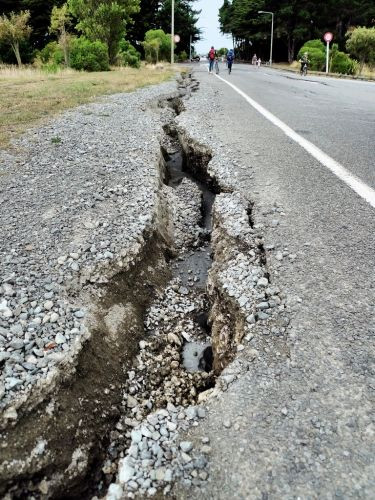Earthquakes May be a Lot Stronger than We Think

Geophysicists at Brown University detailed the phenomenon of flash heating, during an experiment parroting the speed of earthquakes.
“Flash heating is one of several different, possible mechanisms that might make faults weaker than we would normally expect them to be when they slide fast,” said Geophysicist, Terry Tullis of Brown University.
Both Tullis and David Goldsby of Brown University have shown through modeling experiments of earthquakes, that rock surfaces sliding past one another during an earthquake can create intense heat, but only at the pin points where their surfaces touch.
“Earthquakes might be a lot stronger than we think,” said Tullis.
Tullis explained that, fault surfaces only touch at scattered microscopic spots because they are not completely flat and the pin point spots that slide past one another, once contacted, are subjected to intense stress and extreme heating during earthquakes, which lowers their friction while the temperature of the rest of the fault remains unaffected.
“There’s a lot more stress on the few microscopic spots that are in contact, so it can get quite hot but if you slide slowly, although the friction would create a certain amount of heat, the temperature never gets really high,” said Tullis.
“If you slide really fast then the heat that’s generated with coming into contact doesn’t have time to escape,” he added.
The microscopic contact spots when sliding fast generate a lot of heat and because they are only in contact for a short time, the heat does not get a chance to defuse away, causing the temperature to rise so high that that melting can occur.
“According to our lab study, this possibly means that the resistance to sliding during the earthquake is a lot lower than we thought it was before,” he said.
If this lab study does apply to earthquakes then some of the things that researchers thought about earthquakes could be wrong, for instance, if this is the case then earthquakes have possibly been misunderstood as high friction events and may be explained by flash heating.
“Nothing has been proven yet, it [has] just been proven in our lab…this mechanism just opens our mind to new thoughts.”



























